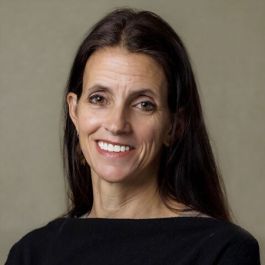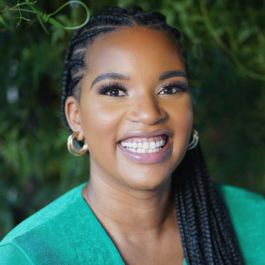Increasing diversity, equity and inclusion (DEI) in tech is not the responsibility of any one person or company. That said, one person can significantly move the needle on DEI at their company, provided they are given the support and resources to do so.
For example, employee resources groups (ERGs) don’t just come into being as the result of a Slack conversation and a few emails. Getting them off the ground requires company support, which is why healthtech Carrot’s human resources team actively helps employees launch ERGs and increase their impact. Ensuring the success of these groups requires dedicating resources to them. For example, at behavioral health company Ginger, leadership provides each ERG with direct funding for activities — as well as compensation for their leaders.
If you’re interested in joining a company where you can do great work and drive change around DEI, we recommend you start your search in San Francisco. Continue reading to learn more about the support and resources Carrot, Ginger and seven other local tech companies provide employees driven to make an impact.

Wix is out to make building a website as easy as possible with a platform that’s designed to give companies and individuals the ability to quickly launch a high-quality site.
Beyond simply speaking up, what’s one concrete action an individual contributor can take to bring about meaningful change in their organization as it pertains to diversity, equity and inclusion?
Extend an invitation to folks of different backgrounds at all levels to give individuals and managers alike a seat at the table.
When I joined Wix, it was important to be my full self with my team and my leaders. As an Asian woman, I want to leverage my empathy and cross-cultural perspective as superpowers to contribute to the team and company culture. With the rise of xenophobia and violence toward the Asian and Asian American community, I felt impassioned to be a part of a space that was safe and supported me in my personal and professional journey. The “sKinTech ERG” became a community for myself and others to process and reflect on the intersectionality of world events in the workforce.
When I joined sKinTech, I knew I was skilled at amplifying voices and bringing people from all backgrounds into the conversation. I partnered with ICs to create Zoom backgrounds for AAPI heritage month and help host events like trivia and movie nights throughout the year. It was clear I didn’t need to have a full resume of DEI work to make an impact and build a more inclusive environment.
It was clear I didn’t need to have a full resume of DEI work to make an impact and build a more inclusive environment.”
How does the leadership at Wix encourage or empower individual employees to be vocal and active in driving forward initiatives that improve diversity, equity and inclusion?
We believe the commitment to diversity, equity, inclusion and belonging is everyone’s responsibility. This past year, we formed the DEI collective, a cross-functional team with a specific commitment to DEI in the business. Having leaders be part of this collective has sent a clear message to the organization and built trust within teams. Personally, I feel more connected working with my top leaders because I know they share the same values as I do. Their participation allows them to see the parts of me that I am bringing to work outside of my background and skills.
There is also a strong support system among the leaders of each ERG. We recently had our AAPI celebration month committee, and leaders from the other ERGs joined to engage in conversations about intersectionality within the groups. Alongside our leaders, we continue to work toward becoming more intentional in how everyone at Wix can participate and be an advocate for DEI across the organization.
Corteva Digital builds digital solutions to help farmers work more efficiently, increase crop yields and work better with their teams.
Beyond simply speaking up, what’s one concrete action an individual contributor can take to bring about meaningful change in their organization as it pertains to diversity, equity and inclusion?
The simplest and most powerful action is sharing — your own lived experience or someone else’s. Bias and prejudice stem from ignorance, and once we understand others’ lives, including their struggles and what they can share with us, we’re able to connect with them easily and supportively. We’ve seen incredible events in the last 12 months. Veteran employees, Asian American employees and Jewish employees have hosted events, sharing their lives and heritage. It’s been an effective part of the greater understanding we’re building between employees of different backgrounds.
At the same time, we’re asking leaders and managers — through coaching and micro trainings — to share their own stories and what actions help or hold them back at work. For me, that means sharing some of my reactions and assumptions at the office as a queer man and an immigrant from a working-class background. I think the emphasis on sharing is a significant factor for why a large majority of our employees feel a sense of belonging.
Individual employees who speak up and take actions to improve diversity, equity or inclusion will be cheered on.”
How does the leadership at Corteva Digital encourage or empower individual employees to be vocal and active in driving forward initiatives that improve diversity, equity and inclusion?
Our leaders have a strong tradition of engaging individually and personally modeling diverse behaviors while encouraging them in others. Corteva’s ambitious, five-year diversity targets — posted publicly — set the context. We survey everyone twice a year specifically to ensure people feel empowered to create change. There’s a genuine sense that individual employees who speak up and take actions to improve diversity, equity or inclusion will be cheered on, and our data shows that over 90 percent of our workforce feel confident and comfortable in taking action.
In the last 18 months, our employees have been moved to create racial justice groups, hold anti-bias learning events and host multicultural celebrations. All of these programs came directly from individuals, with encouragement from managers and logistical support from the people team. Corteva also has business resource groups (BRGs) to support multiple underrepresented groups of people. Employee participation in the LGBTQ+ BRG led to our now annual and vigorously celebrated “Digital PRIDE Week.”
Taskrabbit’s marketplace connects people who need a hand with moving, assembling furniture, home improvement projects and more with local help on-demand.
Beyond simply speaking up, what’s one concrete action an individual contributor can take to bring about meaningful change in their organization as it pertains to diversity, equity and inclusion?
Be brave, take care and make an individual commitment to diversity, equity, inclusion and belonging (DEIB). Dismantling inequity and oppressive systems takes all hands on deck. Often, those from protected classes and underrepresented groups are expected to lead the charge and do most of the work. But it’s these folks who are exhausted, having to live through navigating these racist, sexist, homophobic and ableist systems. In addition, they often have to work twice as hard to get half as much, are expected to educate others and break down the barriers of the various “isms.” This is on top of having to do their own jobs. It’s a lot!
There’s no simple, one-size-fits-all solution, or “one thing” someone can do other than make a solid commitment to being actively engaged in DEIB. So, every day ask, “How can I be purposeful in my commitment to DEIB today?” and go from there. There is so much information and resources available at this point, but it takes a solid commitment to continue to do the work.
Every day ask, “How can I be purposeful in my commitment to DEIB today?”
How does the leadership at Taskrabbit encourage or empower individual employees to be vocal and active in driving forward initiatives that improve diversity, equity and inclusion?
Some leaders have made DEIB a focus when building their teams. Our VP of engineering, Amy Troung, makes it a point to showcase her team’s diverse makeup. While the stats are great, she is committed to doing better. All of our senior leaders serve as sponsors to our cultural affinity groups and employee resource groups, which is integral to ensuring our company is a place where all belong and a psychologically and emotionally safe space to flourish.
These groups do programming and are involved in our company under our “five C’s,” which are the following: creating connection among employees to ensure a psychologically safe space; increasing the company’s cultural understanding of the specific group and community; focusing on career opportunities and needs of the specific group; advising the company on business matters connected to the group, both inward and outward facing; and making an impact on the community.
Planet designs, builds and operates a network of satellites whose geospatial imagery data is used to monitor farms, manage forests, detect security threats and more.
Beyond simply speaking up, what’s one concrete action an individual contributor can take to bring about meaningful change in their organization as it pertains to diversity, equity and inclusion?
Go out of your way to save space for underrepresented groups. This is impactful because it is often taboo to do beyond what is required of you in order to be inclusive. Give out an opportunity; submit a person for praise or recognition who goes unnoticed; identify ways to elevate and bring awareness to current events or even do due diligence with holidays or celebration months.
Go out of your way to save space for underrepresented groups.”
How does the leadership at Planet encourage or empower individual employees to be vocal and active in driving forward initiatives that improve diversity, equity and inclusion?
Planet has made ERGs a very present DEI initiative for employees, with the goal being to increase feelings of belonging among employees. ERGs are an opportunity for employees to cultivate learning opportunities they wouldn’t normally have with their standard day-to-day. More amplification of these groups is definitely needed and appreciated.

Doctors and life science companies use Verana Health’s clinical database and analytics technology to better understand conditions and treatment options and to accelerate research.
Beyond simply speaking up, what’s one concrete action an individual contributor can take to bring about meaningful change in their organization as it pertains to diversity, equity and inclusion?
An IC can gather a cohort of employees who are interested in effecting meaningful DEIB change within the organization. They can then create a proposal for leadership of action items they’d like to implement, including forming ERGs, DEIB committees and scheduling events.
At a previous company, a DEIB committee was founded that went on to schedule monthly lunch and learns featuring subject matter experts on topics like equal pay, diverse recruitment strategies and holistic employee experience programs. As a result, we reshaped our recruitment philosophy to include more marginalized communities, including veterans and individuals who only had a high school degree.
We encourage all of our team to find and use their voice through internal Slack channels, meetings and ERGs.”
How does the leadership at Verana Health encourage or empower individual employees to be vocal and active in driving forward initiatives that improve diversity, equity and inclusion?
Our executive team nominated Dr. Manan K., manager of quantitative sciences, for the “GV Champions of Change” award, highlighting they work with the community in pursuit of equity and social justice. After being selected as a winner, our company made a donation on their behalf to an organization of their choice, then authored a blogpost celebrating their accomplishments in the DEIB space. We encourage all of our team to find and use their voice through internal Slack channels, meetings and ERGs.
Ginger — which recently merged with Headspace to form Headspace Health — offers on-demand therapy, behavioral coaching, psychiatry and more through its app-based platform.
Beyond simply speaking up, what’s one concrete action an individual contributor can take to bring about meaningful change in their organization as it pertains to diversity, equity and inclusion?
At Headspace Health we aim to build psychological safety so employees feel comfortable bringing concerns and needs to the table and empowered to take action. One of our greatest success stories of positive change is when Neca Smith, our coach recruiter, saw a disparity in Black women in leadership at the company. She not only voiced this concern but amplified the need to provide tangible resources to our existing Black women employees in order to promote internal advancement and career growth.
She spoke with various key stakeholders and executives and proposed an idea to form a group that would cater to these needs. Today this group is called “PowHer” and is an ERG with more than 70 official and allied members. The group has held events geared toward helping women of color grow within the organization, including building a five-year plan with consultant Dorianne St Fleur, a fireside chat about WOC in corporate America with Deepa Purushothaman and a Women in Leadership panel conversation for Women’s History Month.
The leaders of these groups are compensated and their programming and efforts are well-resourced.”
How does the leadership at Headspace Health encourage or empower individual employees to be vocal and active in driving forward initiatives that improve diversity, equity and inclusion?
There are a number of ways our leadership team empowers and encourages employees to use their voice, one of which is our ERGs. We have a total of nine groups that represent a number of historically excluded populations, and the leaders of these groups are compensated and their programming and efforts are well-resourced. In addition, our leadership personally supports each ERG with executive sponsorship that includes sitting on our DEIB advisory committee with stakeholders across the company. ERGs are the main vehicle to encourage and drive business initiatives that support historically-excluded groups.
Carrot’s fertility benefits platform enables companies to offer employees financial support for freezing eggs, adoption, in vitro fertilization and surrogacy arrangements.
Beyond simply speaking up, what’s one concrete action an individual contributor can take to bring about meaningful change in their organization as it pertains to diversity, equity and inclusion?
At every organization, all employees should feel empowered to have a voice, the same voice they can use to raise awareness and opportunities for change. For example, starting an ERG is an excellent way for an individual contributor to bring meaningful change to an organization. Employees often think these groups are driven by the company and wait on the sidelines to join or get involved. More often than not, all it takes is an employee simply reaching out to someone in HR to initiate the process.
We have multiple ERGs, all of which were created by employees and led by them. ERG and HR leaders collectively meet once a month to share feedback and discuss broader opportunities surrounding DEI that come from the voice of our employees.
Starting an ERG is an excellent way for an individual contributor to bring meaningful change to an organization.”
How does the leadership at Carrot encourage or empower individual employees to be vocal and active in driving forward initiatives that improve diversity, equity and inclusion?
Feedback is a fundamental part of our DNA, and it’s through regular feedback and conversations that our employees are empowered to raise awareness, unearth opportunities and drive change around DEI. As an example, we conduct a quarterly engagement survey that measures the employee experience and touches on support received from the organization and management and where there are opportunities for improvement. We have a number of questions implicitly and explicitly designed to support our efforts around DEI.
From recent surveys, we have implemented several changes to our communication practices and recruitment efforts. Additionally, we conduct a quarterly people review with department leaders with specific time dedicated to DEI. This enables us to hold all leaders across the organization accountable to support our collective DEI efforts.
Invitae gives people a better understanding of their health through at-home genetic testing and access to genetic counselors who demystify and explain test results.
Beyond simply speaking up, what’s one concrete action an individual contributor can take to bring about meaningful change in their organization as it pertains to diversity, equity and inclusion?
DEI is indeed a shared responsibility that we must all own. Small changes can lead to a big impact, like helping amplify other voices in the room. Group discussions are often dominated by the most outgoing or outspoken teammates, especially on Zoom, and as a result it’s easy not to speak up. Pulling up a seat at the table for your peers changes the energy in virtual and in-person rooms.
Simply inviting folks to the conversation can make a world of difference, as can calling out things like, “I notice Kate was going to say something but we interrupted. What were you going to say?” Giving your peers the floor to talk really helps us feel included and invited to the conversation, and saying it out loud also helps other teammates be aware of interruptions and that room needs to be made for others.
Our Pride-Rainbow Connections ERG worked with our product team to help us launch a patient gender field.”
How does the leadership at Invitae encourage or empower individual employees to be vocal and active in driving forward initiatives that improve diversity, equity and inclusion?
Our nine employee resource groups help us enhance our commitment to DEI. We provide avenues for our ERGs to connect and learn about initiatives that can help us push our mission to provide genetic information to billions forward. One way we’ve done this is through a project spearheaded by our “Pride-Rainbow Connections” ERG. This group worked with our product team to help us launch a patient gender field, giving providers and patients the ability to provide patient gender alongside sex assigned at birth during the order process.
We’ve added information icons to the two fields explaining them, why sex assigned at birth is required and why gender is optional, and how they will be used. This effort was centered around creating a safe and inclusive experience for all patients. This is just one example of how employee resource groups can be a business resource.
Doximity is a digital platform where medical professionals can connect and read industry news while also managing telehealth appointments with patients.
Beyond simply speaking up, what’s one concrete action an individual contributor can take to bring about meaningful change in their organization as it pertains to diversity, equity and inclusion?
Moving beyond speaking up involves seeking actionable solutions. On the editorial team, we talk about solutions journalism and what it means for our work and look into processes that may benefit from a more thoughtful DEI lens. Recognizing non-inclusive aspects of our jobs is an area of growth for many people. For example, I was unaware of the problematic colors for color-blind folks until we intentionally thought about that perspective for our tooling. Unlearning past habits can be uncomfortable. Still, our team tries to use these muscles every day so the knee-jerk reactions of, “Well, I didn’t know” can soften to a less defensive, “Thank you for teaching me this.”
As Heather McGhee teaches us in her book “The Sum of Us,” justice and inclusion work for the minority benefits the majority. We keep that message in mind in our work. Just because an issue affects 1 percent of our audience doesn’t mean it is off the table for us to write about or find experts to interview on the topic. This type of work trickles up and out and lifts the community in more ways than are immediately apparent.
Doximity gives leaders agency and funding to create DEI development plans tailored to team needs.”
How does the leadership at your company encourage or empower individual employees to be vocal and active in driving forward initiatives that improve diversity, equity and inclusion?
Leadership’s dedication to DEI goes beyond a statement of support or developing ERGs. They prioritize DEI work by providing quarterly workshops, talks and training sessions that help employees tie their day-to-day work to pushing inclusivity-focused projects and initiatives forward. In addition, Doximity gives leaders agency and funding to create DEI development plans tailored to team needs.
For example, the editorial team has worked with Christina Blacken from The New Quo, who talked to us about the importance of inclusive language in all forms of communication. We’ve also had the pleasure of learning from Isaac Bailey, a journalist and race relations seminar creator and facilitator, who spoke to us about ensuring the inclusion of different voices and perspectives when writing or editing opinion pieces. I love seeing specific takeaways from these conversations worked into our editorial workflow. The support we receive from leadership to continue these workshops makes a considerable difference in our team’s development.






















